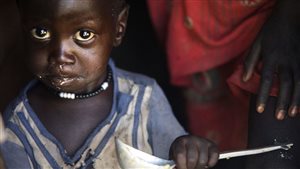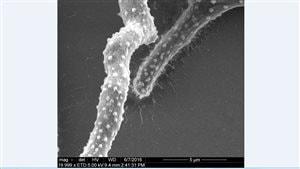your hosts, Lynn, Levon, and Marc (video at bottom)
Listen
South Sudan may not be in the enormously critical food crisis it was just a short while ago, but in June and July, the number of people in need of urgent food assistance will rise to six million up from 5.5 million last month.
That is half of the population in South Sudan and according to the World Food Programme, 1.7 million people still face extreme hunger – one step below famine.
Three years of vicious civil war along ethnic lines have contributed to an economic crisis that has been exacerbated by crop failures, sending food prices skyrocketing. The result has been a food crisis that continues to spread throughout the country.
Levon spoke to Canada’s International Development Minister Marie-Claude Bibeau who returned from a four-day trip to South Sudan on Tuesday where she said the situation remains desperate.
*

The Sudanese situation is part of an overall humanitarian crisis.
Since 2000, the United Nations reports that the number of people who have been forced to flee their homes has reached over 65 million.
The UN human rights commission, UNHCR, says that last year, one of every two people displaced was a child.
While millions are living in refugee camps, over a million of them need to resettled in host countries.
Lynn spoke to Jean-Nicolas Beuze, UNHCR’s representative in Canada, who said his organisation is underfunded, and also that more countries need to come forward to help in resettlement.
*

Canadian researchers in Montreal and Toronto have made a potentially huge breakthrough in fighting infections.
Scientists know that infectious microbes create a biofilm around themselves. It helps them stick to surfaces like artificial hips, heart valves, catheters, and even tissue.
It also protects them like armour against the body’s immune system and from drugs targetting them. What the MUHC and Toronto Sick Kids researchers found was a way to destroy this “armour” and make the bacteria and fungus much more vulnerable to treatment.
It could mean that old drugs for which bacteria have developed resistance cold become quite effective again, and current drugs up to hundreds of time more effective.
Marc spoke to Dr. Don Sheppard of the MUHC in Montreal, co-lead on the research
Posted by Radio Canada International on Friday, June 23, 2017
Images of the week







For reasons beyond our control, and for an undetermined period of time, our comment section is now closed. However, our social networks remain open to your contributions.